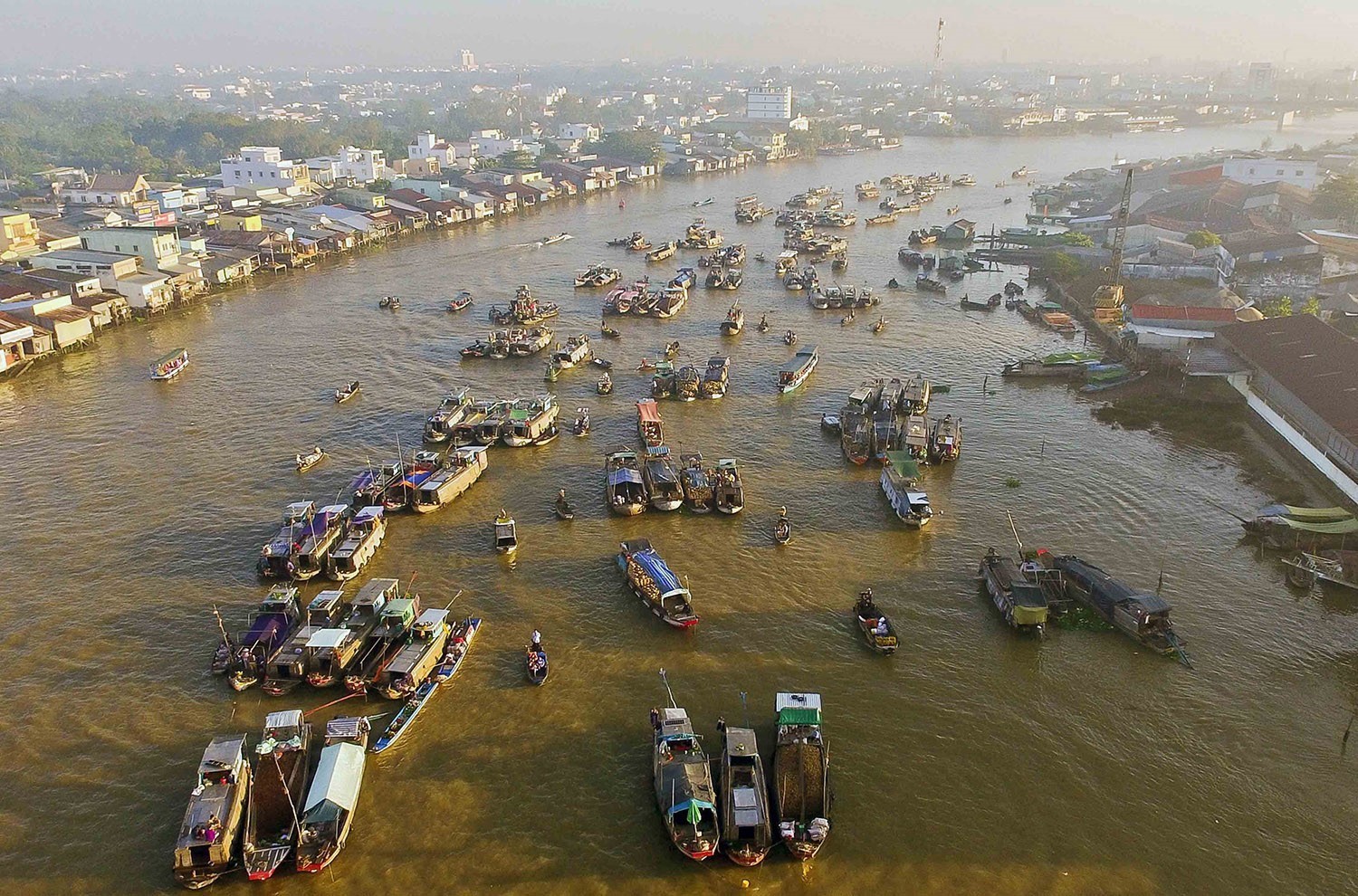
A vast major economic zone covering 40,400 sq.km., the Mekong Delta boasts abundant advantages in agricultural production and investment attraction across a variety of fields. However, for years, the slow development transport infrastructure has hindered the development of the region, becoming a bottleneck that prevent localities in the region from fully tapping their potential and optimising their natural advantages.
The fertile delta accounts for about 40 percent of the country’s agricultural output, including more than 54 percent of the rice yield and 90 percent of rice exports, 65 percent of aquaculture output, and 70 percent of the country’s fruit.
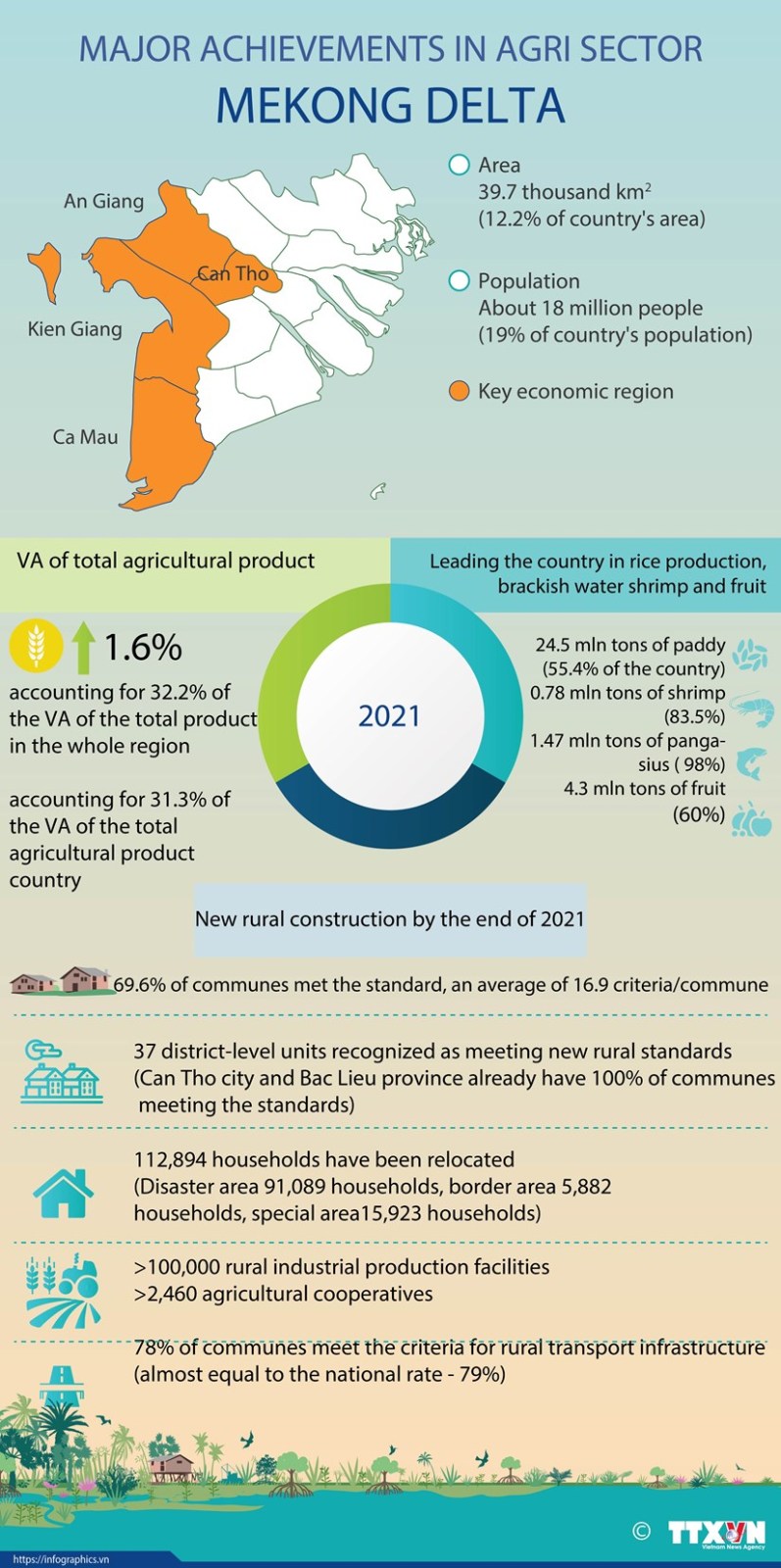
Analysing investment attraction in the Mekong Delta, Director of the Vietnam Chamber of Commerce and Industry (VCCI) in Can Tho Nguyen Phuong Lam said the advantages of the region come from its geographical location.
Sprawling across a vast flat fertile land coupled with an extensive river network and coasts on both sides, the Mekong Delta holds huge advantages in the sectors of rice, aquaculture, vegetables, tourism and energy.
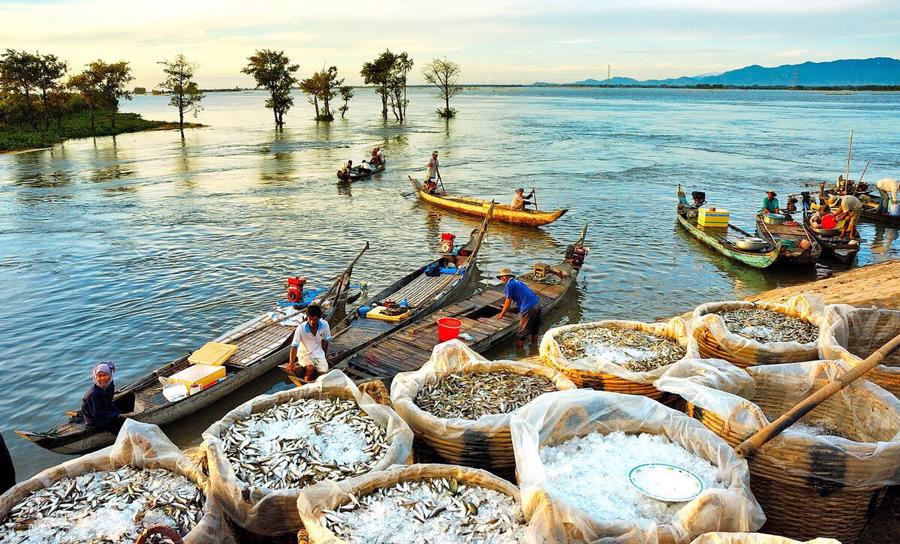
In addition, the Delta is home to a favourable business climate that has gradually improved over the years. The region’s provincial competitiveness index (PCI) has ranked first nationwide in recent years.
Lam pointed out that infrastructure is among the major challenges facing the Mekong Delta at present. Its logistics sector lacks cold chain technology while seaport and river port infrastructure remains modest in terms of scale and quality.
Logistics infrastructure lacks connectivity and there are few providers offering full packages. Inadequate transport infrastructure results in high logistics costs, impairing the competitiveness of the region’s commodities.
General Secretary Truong Dinh Hoe of the Vietnam Association of Seafood Exporters and Producers (VASEP) said 85 percent of export items from the Mekong Delta must go through ports in Ho Chi Minh City and Ba Ria-Vung Tau, while the rest is transported by land to border gates in the central and northern areas.
As a consequence, seaport and logistics services in the Delta have yet to meet production and consumption demand for key products.


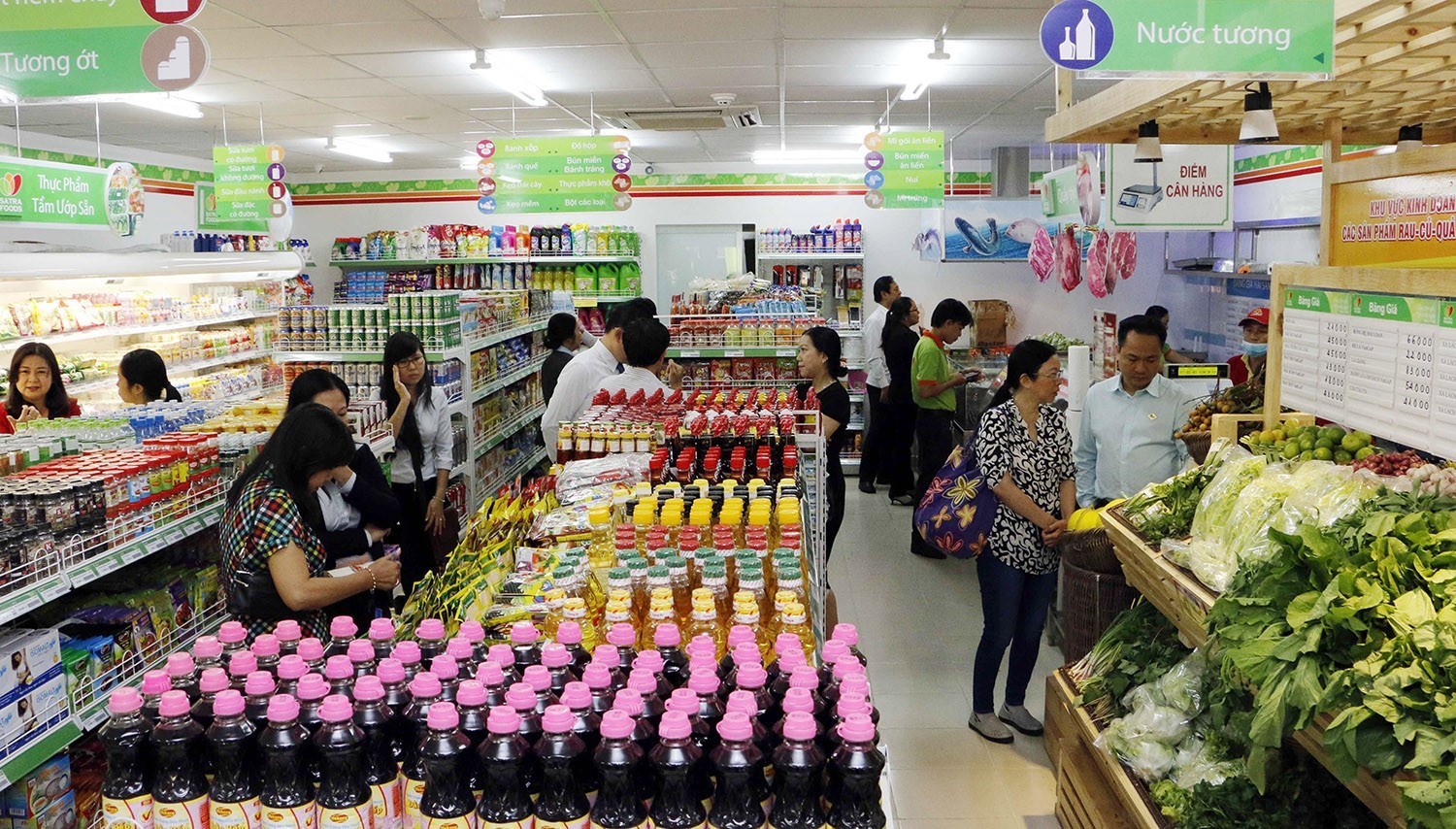
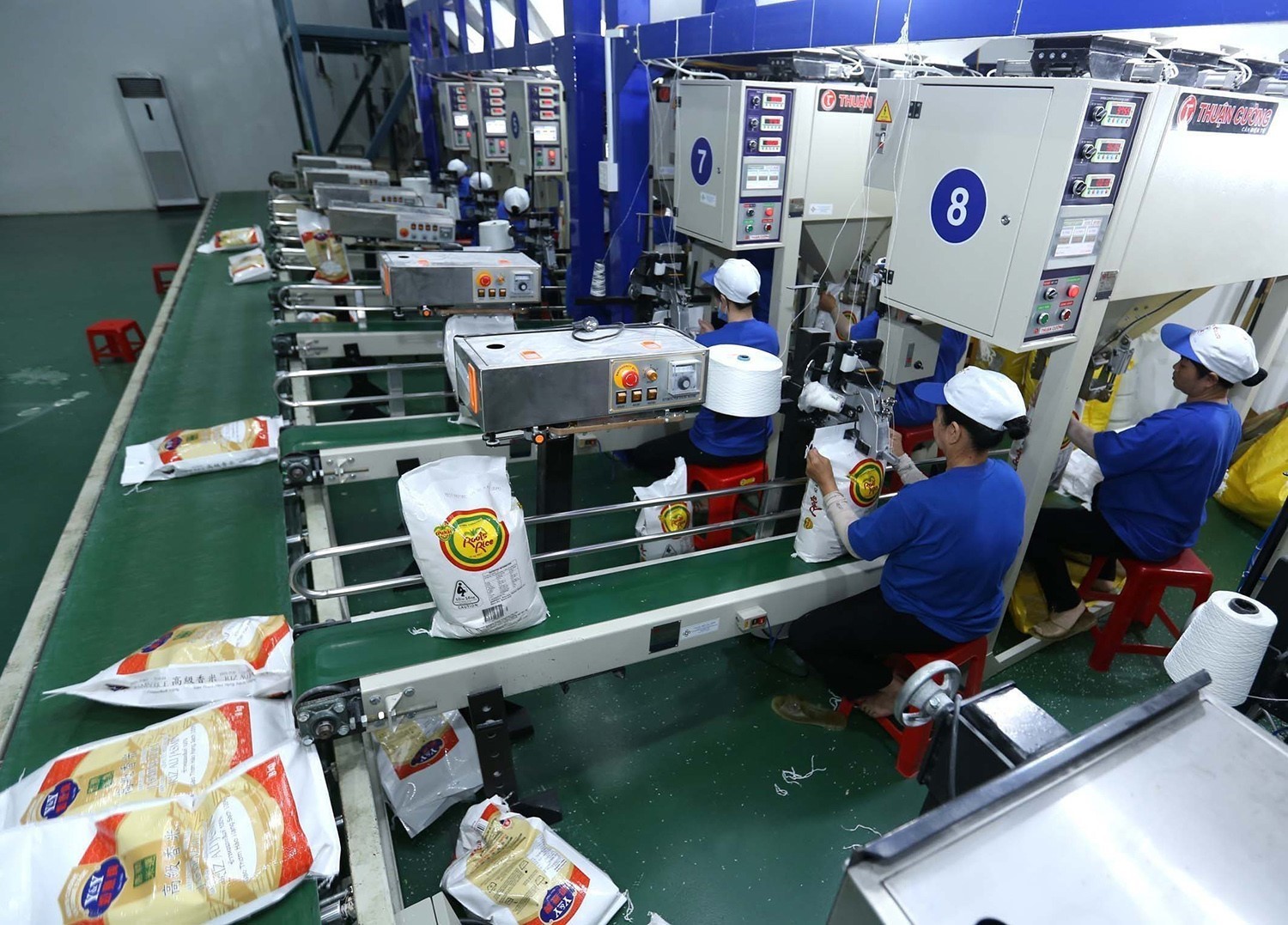
* Developing transport infrastructure
A master plan for the Mekong Delta region for the 2021-2030 period, with a vision to 2050, was recently adopted, aiming to turn the region into a highly developed and attractive destination to tourists and investors.
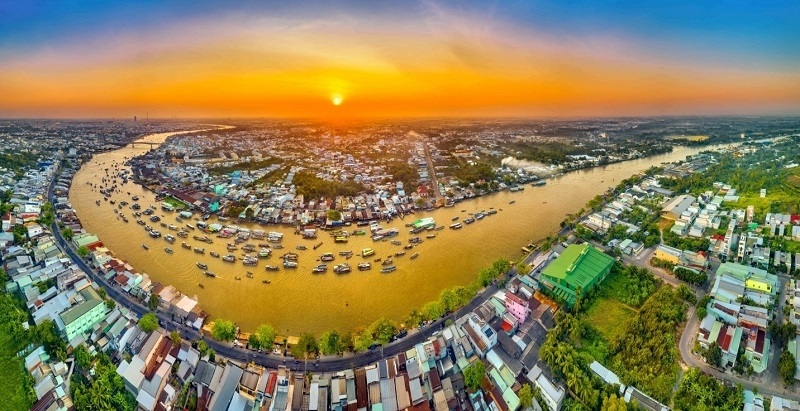
It looks to develop transport infrastructure so as to bolster regional and international connectivity and tap into the region’s strengths in inland waterway transport.
The plan aims to build new and upgrade about 830km of expressways, about 4,000 km of national roads, four airports, 13 seaports, 11 passenger terminals and 13 inland cargo ports by 2030.
The Delta is projected to have 1,166 km of expressway by 2030 connecting localities in the southern region and linking its seaport network with international border gates.
The building of 13 cargo ports is expected to raise total volume of handled goods to more than 53 million tonnes per year while 11 passenger terminals may serve 31 million visitors annually.
By 2030, the seaport system is estimated to handle 64-80 million tonnes of commodities, with container cargo weighing 600,000-800,000 TEUs.
In regards to aviation development, Phu Quoc international airport will be the main hub for domestic and foreign tourists while Can Tho international airport is set to be the region’s air logistics hub.
The construction of Rach Mieu 2 bridge over Tien River began last month. The bridge will have six lanes to ease traffic on National Road 60, cutting travel time and costs for vehicles between HCM City and the provinces of Ben Tre, Tra Vinh, Soc Trang, Bac Lieu and Ca Mau.

At the same time, regional provinces and cities are speeding up the construction of key transport works to leverage socio-economic development./.
Related stories:
Mekong River Delta moves toward prosperity, sustainability
Party chief urges greater efforts to help Mekong Delta take off